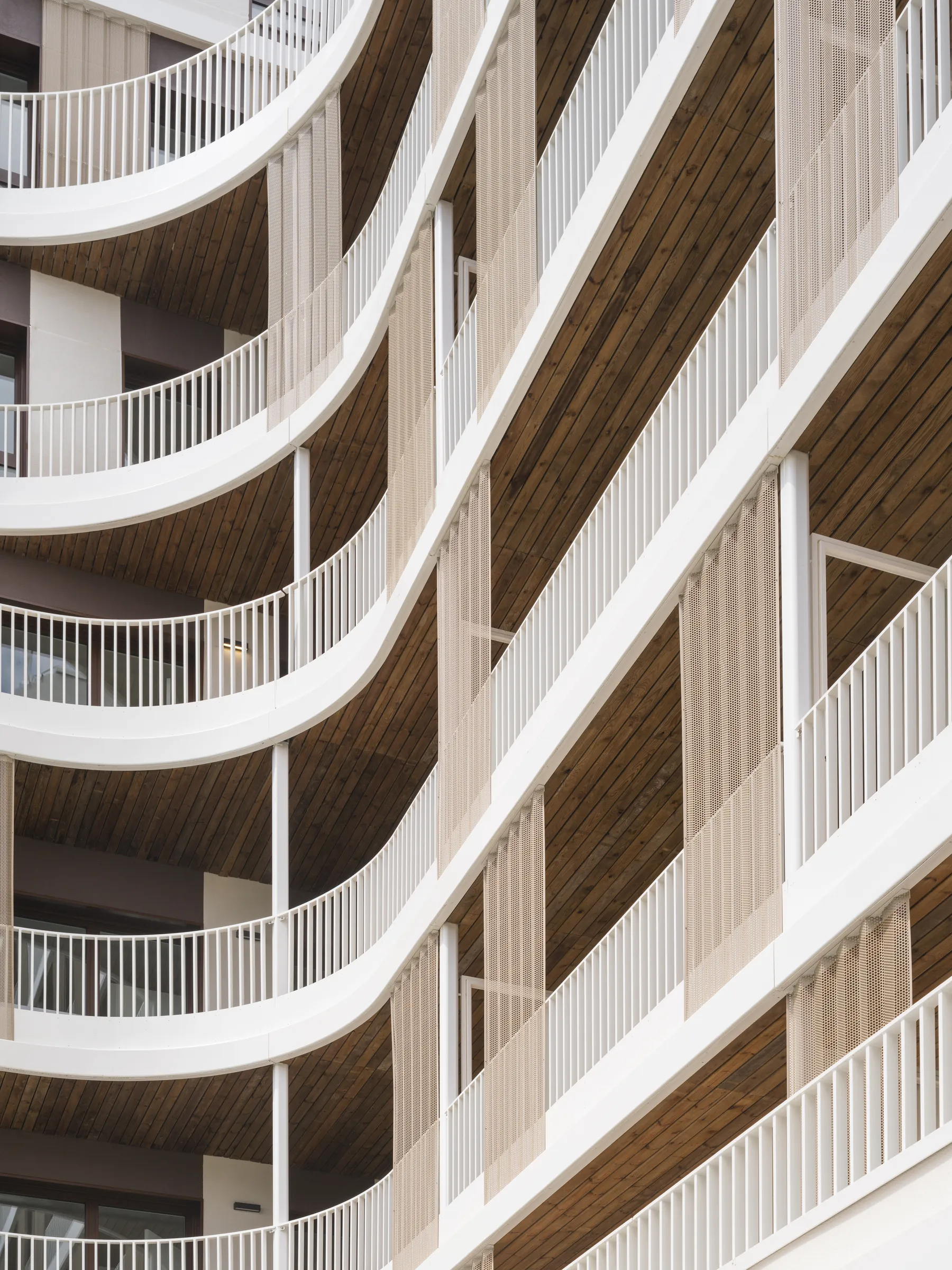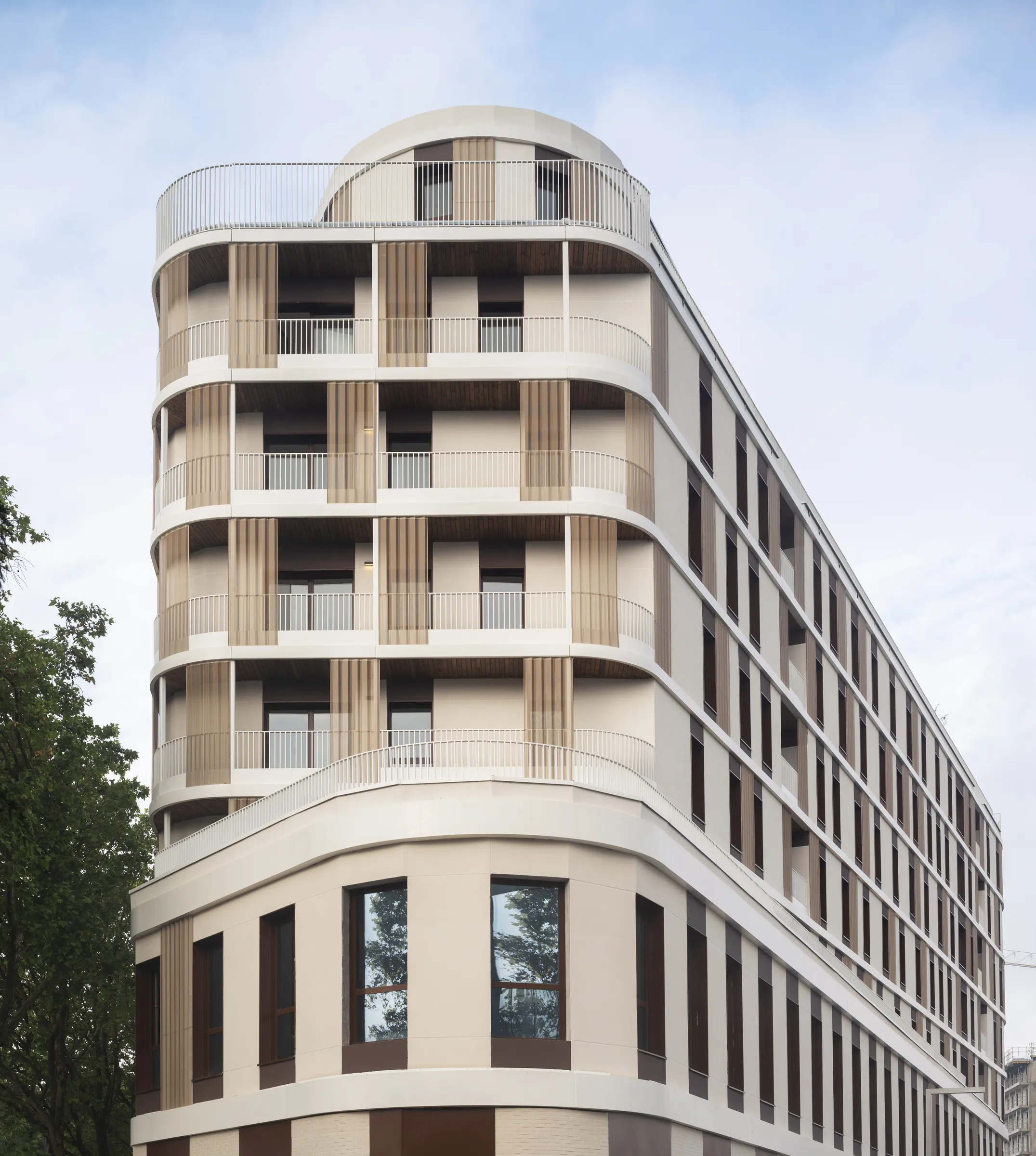Woodeum
Woodeum is developing a low-carbon timber housing offer, with operations adapted to each region, that is one step ahead of the RE2020 Environmental Regulation, with a view to becoming the leader in low-carbon property development in France. All operations aim for at least the 2028 threshold of the RE2020 or the BBCA label, thus taking environmental developments in property to the next level, with sights firmly set on carbon neutrality by 2050.

National leader in low-carbon property development
To meet the challenges of climate change, low-carbon construction needs to be scaled up and deployed on a massive scale in France. Woodeum wants to help build this momentum. By combining innovation, technological progress and strong local roots, Woodeum is developing a low-carbon timber offer that is one step ahead of the 2020 Environmental Regulations.
All Woodeum projects aim for exemplary environmental performance and, as a minimum, meet the 2028 threshold of RE2020 or the BBCA label. To strengthen its leadership in low-carbon property development, Woodeum draws upon its many strengths: technical expertise in timber and low-carbon construction linked to its in-house R&D department, and its regional presence throughout France.


A 100% low-carbon trajectory
With a commitment to reducing its carbon footprint spanning several years, Woodeum is the Altarea Group brand that is developing a low-carbon timber property offer with the aim of achieving carbon neutrality by 2050. Developing buildings that are well ahead of current standards and exemplary in terms of environmental performance, Woodeum continues to expand its range of low-carbon technological solutions in order to deploy 100% low-carbon construction throughout France. Research, development and innovation are central to Woodeum’s projects from the design stage, to ensure that the right material is used in the right place.
Woodeum’s strategy to limit the carbon impact of buildings is applied throughout the value chain: selecting the least carbon-emitting materials possible (biosourced, geo-sourced), adopting a combined transport approach, promoting reuse and selective screening of all internal services. Everything is designed to deliver comfortable, energy-efficient housing, adapted to global warming and with a low carbon footprint. This approach benefits both resident buyers and investors because it ensures better interior comfort (acoustic, thermal, air quality) and safeguards the asset value of the property.

